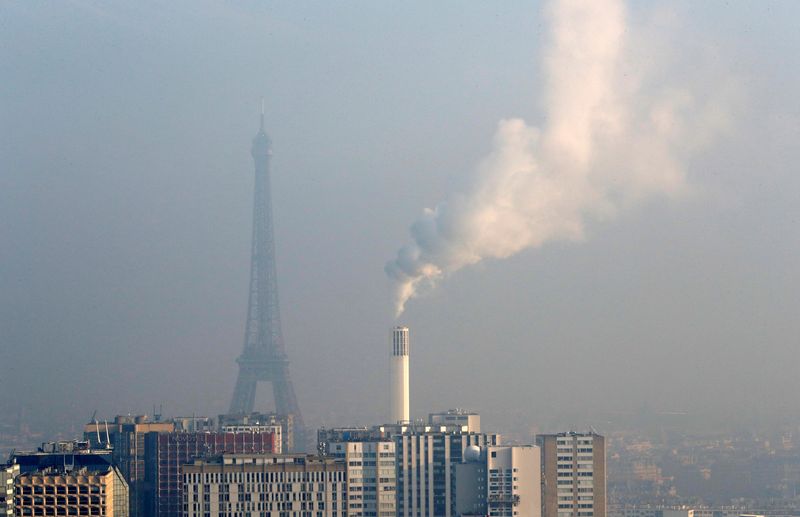BRUSSELS (Reuters) - The European Parliament adopted stricter legally-binding air pollution limits on Wednesday that must be complied with by 2030.
WHY IT'S IMPORTANT
The World Health Organization (WHO) tightened its air quality guidelines last year, hoping to push countries toward clean energy and prevent deaths caused by dirty air.
Air pollution causes 300,000 premature deaths in Europe each year. EU Environment Commissioner Virginijus Sinkevicius said the tougher EU rules could reduce that number by 70% over the next 10 years.
Europe's air quality has improved over the last decade, but the EU has still taken more than 10 countries to court for breaching its limits. The European Court of Justice has found countries including France, Poland, Italy and Romania guilty of illegal air pollution.
HOW IT WORKS
The deal between the EU governments and the Parliament sets stricter 2030 limits and target values for several of the pollutants with a severe impact on human health.
The new rules also make currently-fragmented air quality indices across the EU comparable, clear and publicly available.
If the new national rules are being violated, those affected by air pollution will be able to take legal action, and citizens may receive compensation if their health has been damaged.
KEY QUOTE
"This is a law which will protect public health and the health of our citizens, because we know that clean air is not a luxury at all. It's a right that we should be guaranteeing," Javi Lopez, a Spanish Member of the Alliance of Socialists and Democrats in the Parliament, said.
WHAT'S NEXT

The EU Parliament approved the law with a majority of 381 votes in favour, 225 against and 17 abstentions.
It still needs approval from EU countries to enter into force, usually a formality which approves laws with no changes.